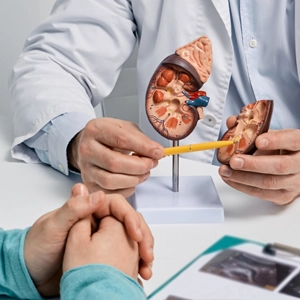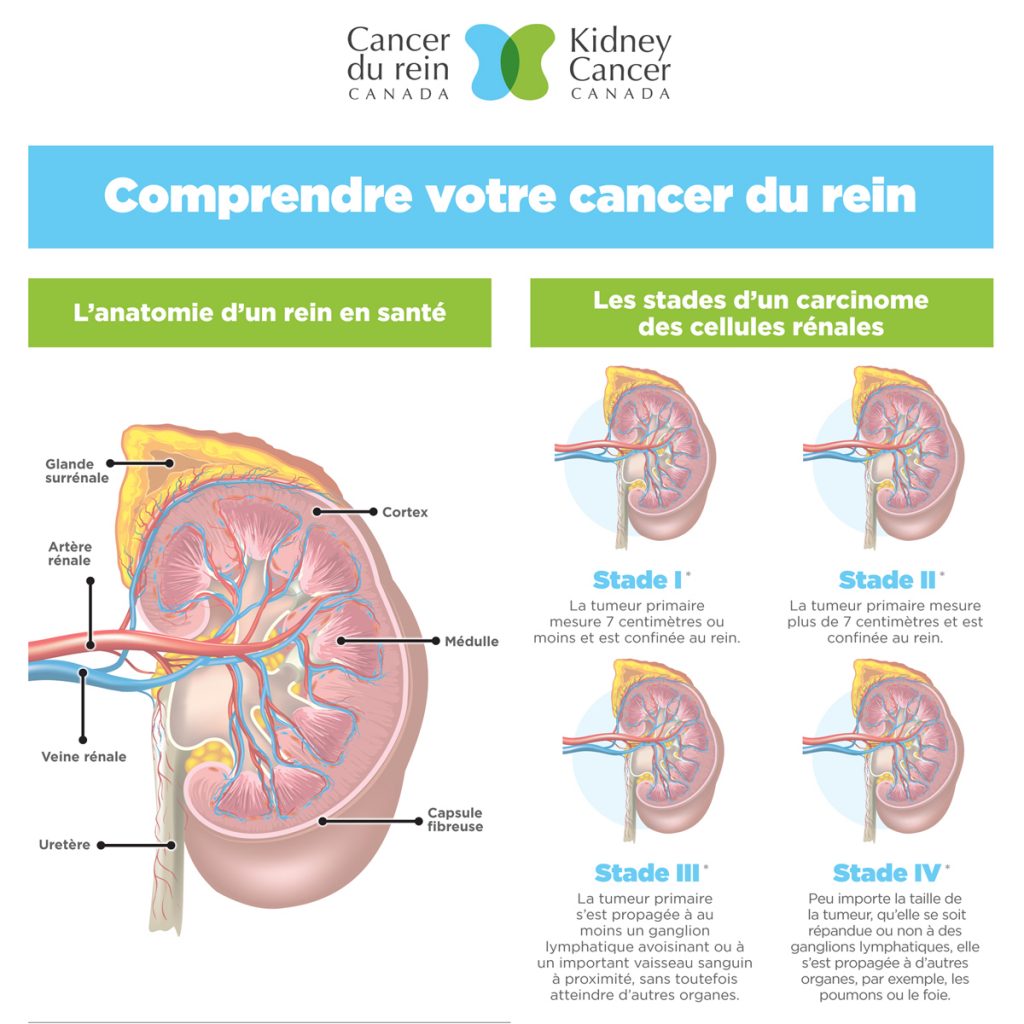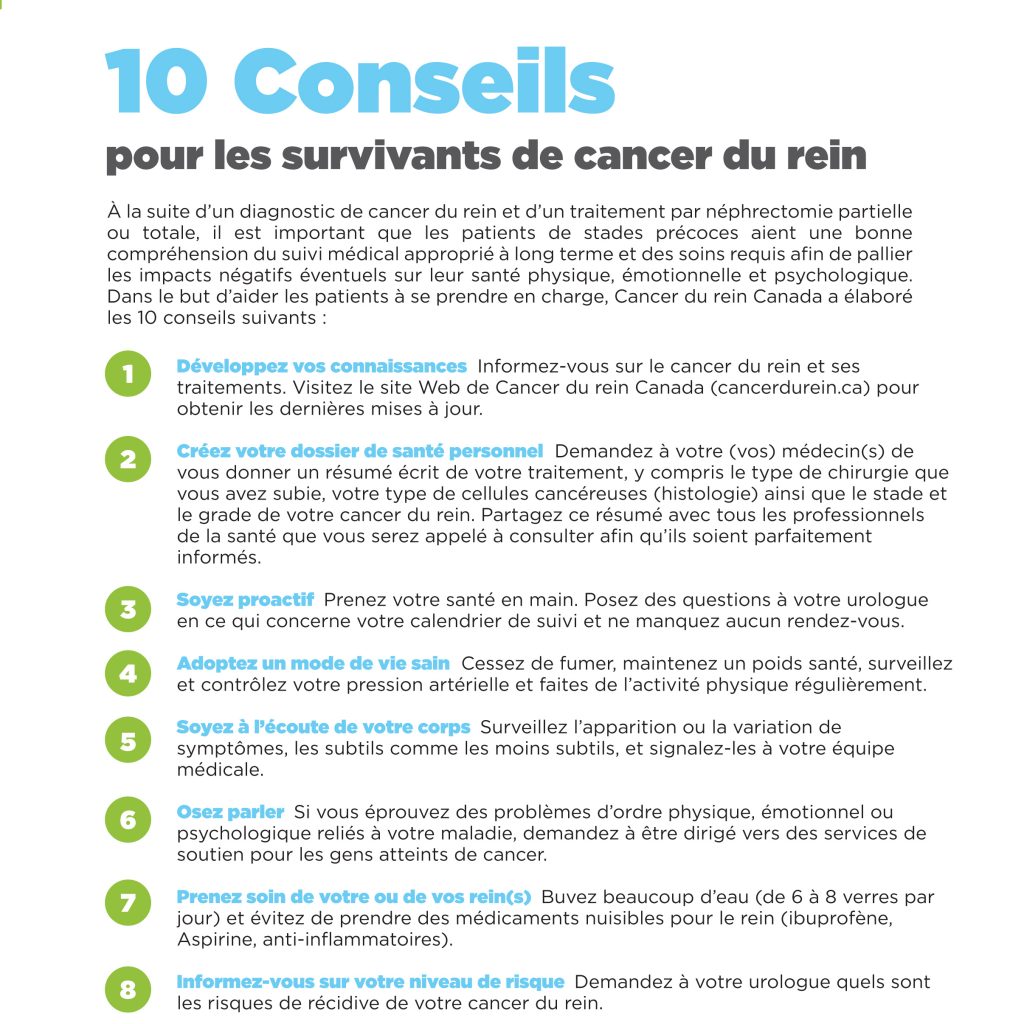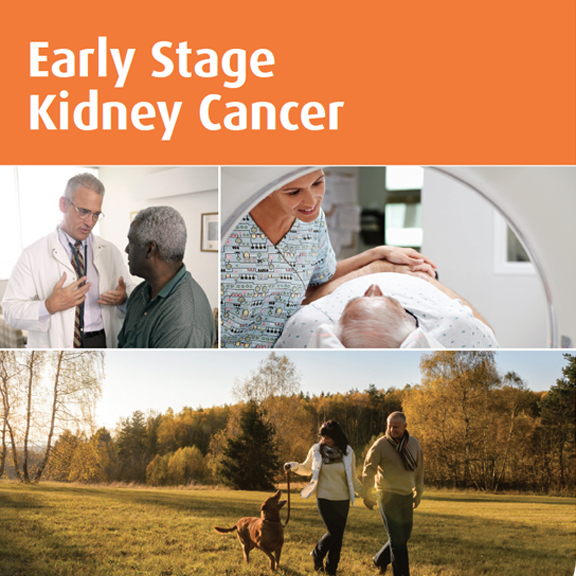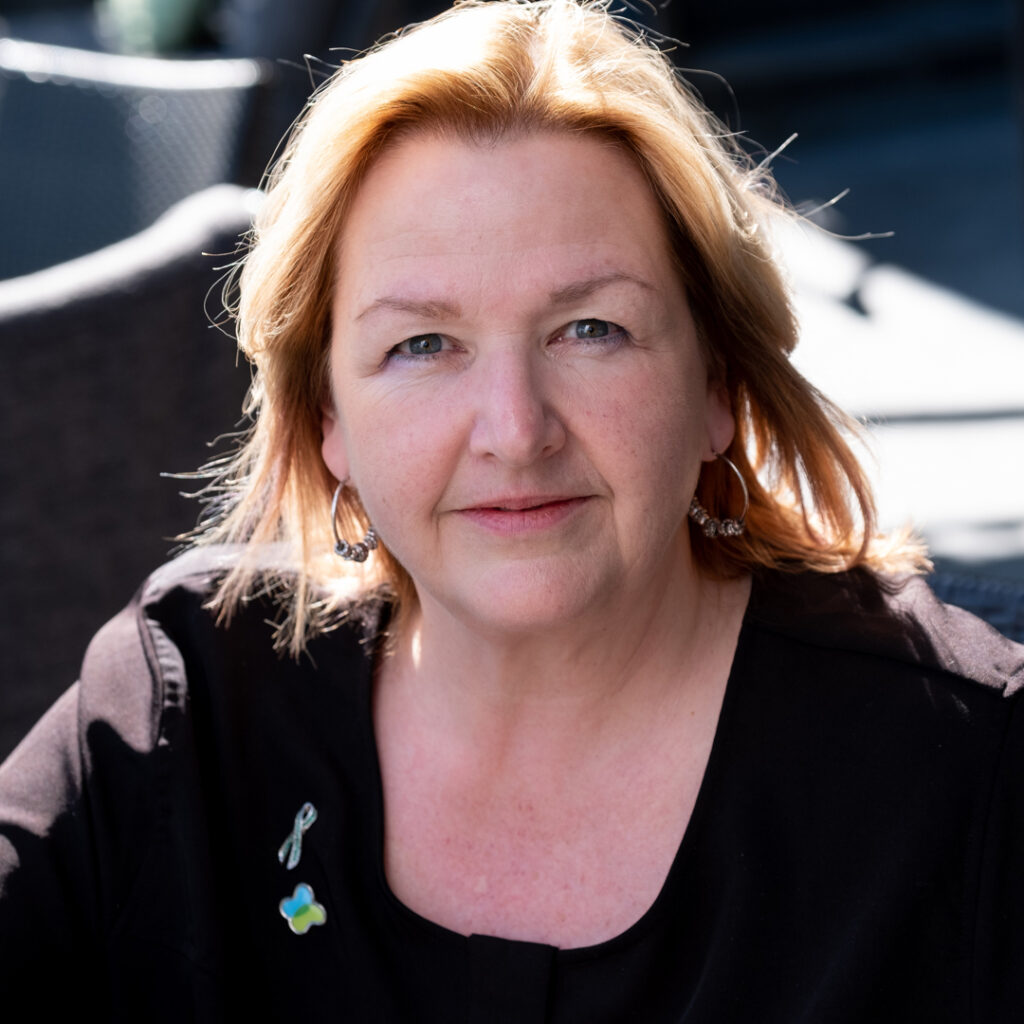Am I a candidate for a radical nephrectomy?
A radical nephrectomy is the surgical removal of the whole kidney. Your urologist performs this surgery using an open, laparoscopic or robotic approach. Evidence suggests a radical nephrectomy may be “over‐treatment” for some kidney cancers that are smaller than 7 cm. Removing the full kidney can affect your overall kidney function leading to higher risk of kidney disease later in life.
The joint decision between you and your Urologist to perform a radical nephrectomy considers several factors and always includes an analysis of the benefits versus the risks to you. These factors include:
-
- The size of the tumour
- The presence of tumours in both kidneys
- Whether you have only one functioning kidney
- Whether you have other diseases (co-morbities) that may affect your kidney function, now or in the future.
A radical nephrectomy generally should not be considered the first surgical option you choose for any tumour smaller than 7 cm. You may wish to discover other options with your urologist such as a partial nephrectomy, ablation techniques or SBRT.
HELPFUL TIP:
Ask your urologist to fill out and give you a copy of the Kidney Cancer Canada “Understanding Your Kidney Cancer” sheet. Print one and take it with you to your appointment. If your doctor doesn’t have the sheet, they can order free copies.
What size is my kidney tumour?
Is my tumour in a location in the kidney that is suitable for a partial nephrectomy?
Tumours located in the upper or lower pole of the kidney or are in a peripheral location of the kidney are most suited to removal by partial nephrectomy.
Do I have other medical conditions that threaten my long-term kidney function?
It is important to preserve the function of your kidneys with a partial nephrectomy if you have any medical condition that can threaten your future kidney function. Examples of these conditions include diabetes, high blood pressure, kidney stone disease, and chronic kidney disease.
Does my history of past surgical operations prevent the use of a partial nephrectomy in my case?
If you had previous abdominal surgery for any reason, it may increase the complexity of a partial nephrectomy to the point it is not a suitable option.
What is my urologist’s experience with partial nephrectomies?
A partial nephrectomy is a more complex surgery than a radical nephrectomy (removal of the entire kidney) And is best performed by a surgeon with significant partial nephrectomy experience. If your urologist is not comfortable with the procedure, ask to be referred to another urologist for a second opinion.
Do I have tumours present in both of my kidneys?
Tumours present in both your kidneys (either at the same time or at subsequent times) typically suggest the preferred surgical option is a partial nephrectomy on one or all kidney tumours.
Do I have multiple tumours in my kidneys?
Having multiple tumours in the kidneys may indicate a hereditary form of kidney cancer.
If you only have one kidney then a partial nephrectomy must be considered – though you should ask your urologist to explain all options, including non-surgical, that are available to you. Removal of significant portion of your remaining kidney may mean you require dialysis to perform kidney function.
Does my own diagnosis or a family history suggest a genetic predisposition to kidney cancer?
If your doctor suspects you have a genetic tendency towards kidney cancer, you may have another tumour(s) in the future. In these cases, a partial nephrectomy may be your best surgical option to conserve as much kidney function as possible.



